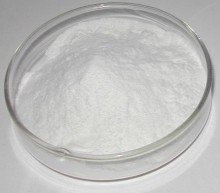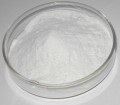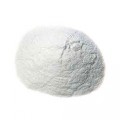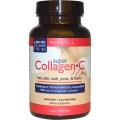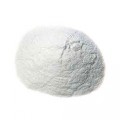 Loading... Please wait...
Loading... Please wait...- Home
- About Us
- Shipping, Returns & FAQ's
- Contact Us
-
For Your Information
- Canadian Customers Have a Choice if Shipping Via UPS
- Aura Cacia Homemade Aromatherapy Recipes
- Bella Nella Altered Art & Paper Crafts Blog
- Forms of Herbal Preparations
- Laundry Tips To Conserve Energy Blog from The Laundress
- The Story of Frontier Natural Products Co-Op
- Sovereign Silver Hydrosol and Aloe Protocol Stops Downward Spiral of Gut Dysbiosis
- Disclaimers
- Recommended Links
- RSS/Recent News
- The Story of Typhoon Housewares
- Reviews/Testimonials
- Raw Ingredients for Mfg
- Home
- Body Care and Beauty
- Skin Care
- Collagen Hydrolyzed Bovine Type 1/3 Powder Beverage Grade Bulk
- Home
- Raw Materials
- Additives
- Collagen Hydrolyzed Bovine Type 1/3 Powder Beverage Grade Bulk
Collagen Hydrolyzed Bovine Type 1/3 Powder Beverage Grade Bulk
Product Description
Collagen is the main component of cartilage, ligaments, tendons, bone and teeth. Along with soft keratin, it is responsible for skin strength and elasticity, and its degradation leads to wrinkles that accompany aging.
Collagen type 1 is the most useful and greatly distributed in the body and is derived from bovine sources. The main protein of connective tissue in animals and the most abundant protein in mammals, making up about 25% of the total. It is one of the long, fibrous structural proteins whose functions are quite different from those of globular proteins such as enzymes. It is tough and inextensible, with great tensile strength, and is the main component of cartilage, ligaments, tendons, bone and teeth. Along with soft keratin, it is responsible for skin strength and elasticity, and its degradation leads to wrinkles that accompany aging. It strengthens blood vessels and plays a role in tissue development. It is present in the cornea and lens of the eye in crystalline form. It is also used in cosmetic surgery and burns surgery. It is a protein in the extracellular membrane that supports the cell and gives it structure from the outside. They are connected to the cell from the fibronectin protein which is connected to the integrin proteins embedded in the plasma membrane.(1)
Collagen has been widely used in cosmetic surgery, as a healing aid for burn patients for reconstruction of bone and a wide variety of dental, orthopedic and surgical purposes. Some points of interest are:
- when used cosmetically, there is a chance of allergic reactions causing prolonged redness; however, this can be virtually eliminated by simple and inconspicuous patch testing prior to cosmetic use, and
- medical collagen is derived from young beef cattle (bovine) from certified BSE (Bovine spongiform encephalopathy) free animals. Most manufacturers use donor animals from either "closed herds", or from countries which have never had a reported case of BSE such as Australia and New Zealand
- due to the care in donor animal breeding and selection, as well as the technology used in the preparation of collagen from animal sources, the chance of immune reactions or disease transmission has been virtually eliminated
- alternatives using the patient's own fat, hyaluronic acid or polyacrylamide gel are readily available
Collagens are widely employed in the construction of artificial skin substitutes used in the management of severe burns, as well as for a wide range of dental, orthopedic, and surgical purposes. These collagens may be derived from bovine, equine or porcine, and even human, sources and are sometimes used in combination with silicones, glycosaminoglycans, fibroblasts, growth factors and other substances.
Collagen is also sold commercially as a joint mobility supplement. This lacks supportive research as the proteins would just be broken down into its base amino acids during digestion, and could go to a variety of places besides the joints depending upon need and DNA orders.
Over a third of our body’s protein is made of collagen. Furthermore, 75% of our skin is collagen. Collagen acts like a scaffolding in our body Collagen controls the differentiation and shape of our cells. It also motivates the blood vessels to grow and feed injured areas, there by causing wounds to heal and broken bones to regenerate.
Elastin is a triple helix formation of collagen very important in our body as it allows soft tissue fibers to expand and contract to a normal state. This elastic capacity is gradually lost in the aging process as well as by the effect of solar rays and smoking.
Of the 15 types of collagen molecules, 3 are specific for the skin, 5 are specific for connective tissue. Collagen is formed by chains of amino acids which make up the molecules which in turn create fibrils. These fibrils produce the fibers which form the bodies’ tissues. The function of the tissue is reflected by the distribution and orientation of its type of Collagen. For example, collagen is what transmits tension in the tendons, gives structural support in the skin and bones, and limits expansion in the arteries.
Collagen contains large amounts of proline and amino acids both of which require vitamin C as a cofactor.
Collagen plays an integral part during each phase of wound healing including surgical intervention. It acts as haemostatic agent when supplied to a wound which quickens the body’s own repair mechanism.
Effects of collagen absorption
- Wrinkle softening
- Repair of sun damaged skin
- Revitalization of dry skin
- Increase of healing time for wounds and physical injuries
- Stronger hair
- Stronger nails
- Stronger bones
- Reduced appetite for refined carbohydrates i.e. Weight loss
- Rejuvenated cartilage and muscle, tendon, ligament and facia throughout the body
- Improved strength training ratios
Body systems and collagen
Muscles
Skeletal muscles (striated) create our body’s posture and movement.
They are connected to bones and arranged around joints in opposing groups.
Tendons are the ends of muscle fibers which connect the muscle to its bone and are composed of tough bands of connective tissue. Surrounding the joints are similar and even tougher tissues called ligaments, connecting bone to bone. Collagen is the primary building block of these tissues and a type of collagen we call elastin gives them their flexibility.
Bones
The hard outer part of bones is made up mostly a protein such as collagen. Bones containing sufficient collagen are strong and elastic. Lacking collagen there are brittle and weak. Bone spurs are primarily caused by weak bone tissue and /or weak joint metabolism. When this happens, and the joint structure becomes unbalanced along the joint cartilage, soft tissues in the area are calcified to form bone spurs. Therefore, collagen which builds strong bones and related tissues protects from spur formation AND helps prevent the drainage of valuable calcium from bony tissues which could lead to osteoporosis or osteoarthritis.
Cartilage
Cartilage covers the ends of our bones as a smooth, tough, protective tissue reducing friction and absorbing shock. Cartilage is composed of 95% collagen. Osteoarthritis is mainly caused by wear and tear of joint cartilage.
Blood vessels
Blood vessels are subject to mechanical stress during the pumping of blood.
They must have mechanical properties that withstand these stresses. For this reason blood vessels are soft collagenous tissues which contain a high amount of elastin.
Chronic Conditions Aided by Collagen
Osteoarthritis/Degenerative Joint Disease
This condition consists of joint inflammation which breaks down the local cartilage. Its painful effects can be experienced in the finger/toes, spine, hips and knees. The beneficial effect of well investigated glucosamine and chondroitin is that either of these naturally occurring compounds may stimulate new collagen production. Therefore, absorbing collagen through the natural way of the digestive system would appear optimal.
Bursitis, Tendonitis, Tendonosis
There are inflammations of the tissues attached to joint areas usually due to sports injury, repetitive action injuries or postural deficiencies complicated by stress. Tiny tears appear in collagen formation of the joint capsule adjoined tissue and this breakdown causes an inflammatory response. In these cases, collagen hastens the healing process.
Collagen, being the basic building material of the body, is absorbed through the digestive system and distributed in the key necessary areas by the circulatory system. From the bodies point of view the least important area is face. In fact, the body/brain system robs collagen from the face to transport to other areas after the age of 27 when the body reduces greatly its own collagen production. The effect of this action is wrinkles. On the other hand, this same marvelous brain/body mechanism always replaces and replenishes collagen from the most internal need to the most external…that is first inline of collagen protection is your heart and internal organs and the last is the skin…your bodies’ largest organ. Overtime and by consistent collagen absorption you will effectively repair and renew internal as well as external tissues.
Store in a cool dry place 59-76 degrees F., below 55% humidity. Protect from excessive heat.
Molecular weight <3,000.
Source: Wikipedia.org
You Recently Viewed...
Currency Converter
Choose a currency below to display product prices in the selected currency.








